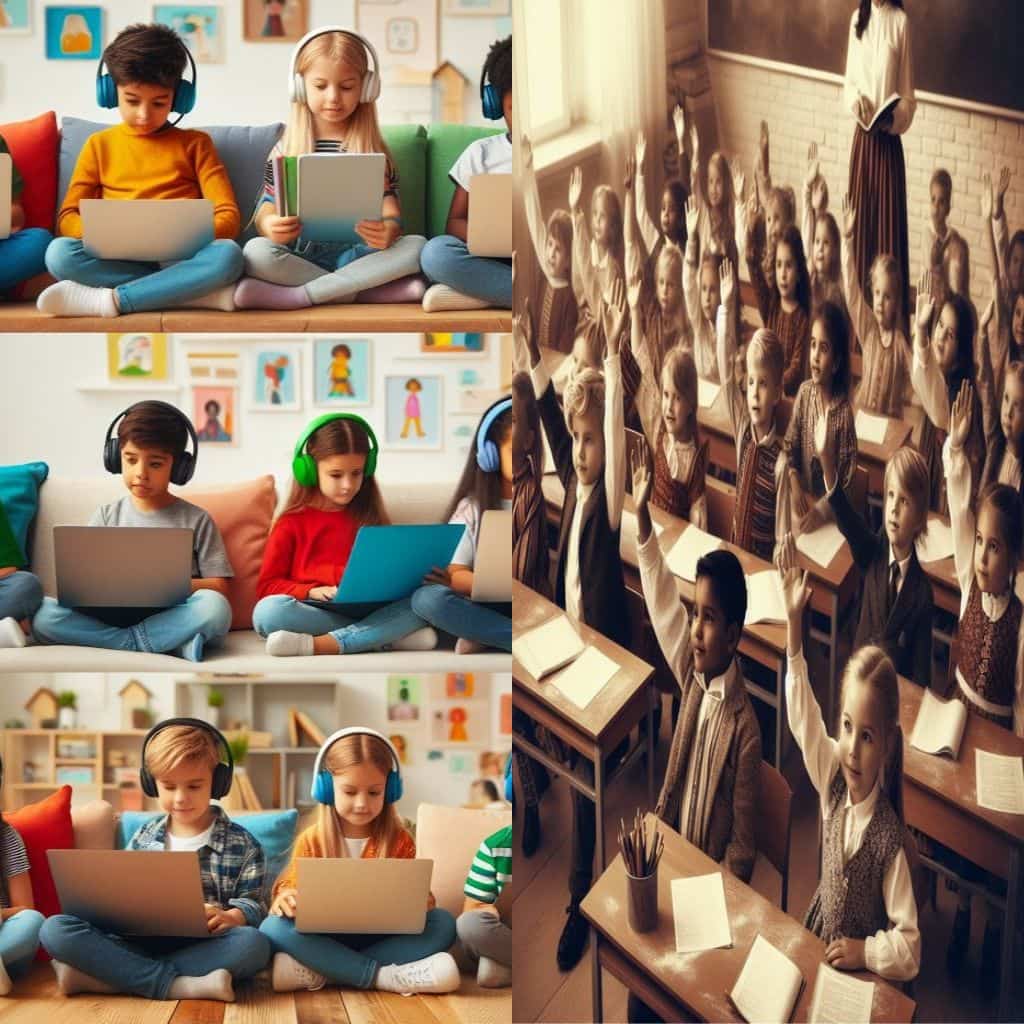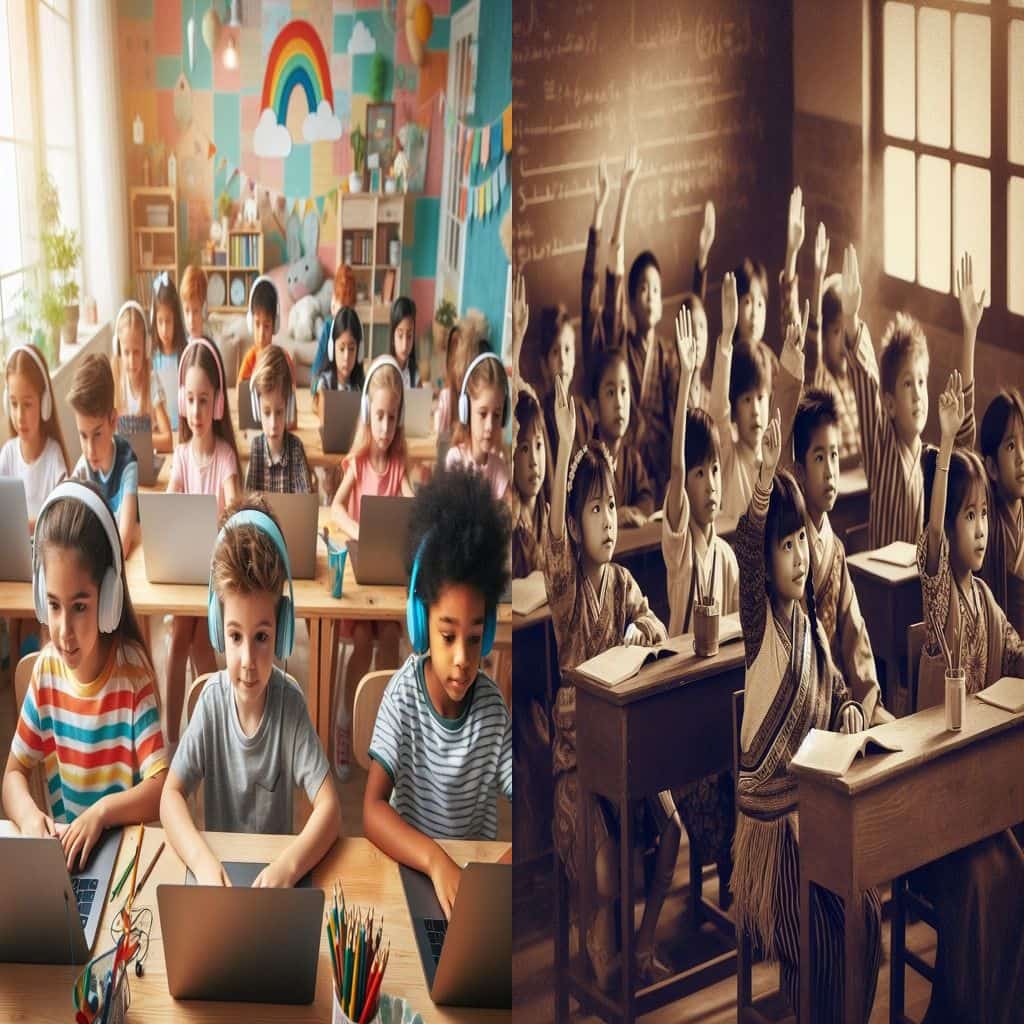Education is a critical aspect of a child’s development, and the method of education plays a significant role in shaping their future. In recent years, homeschooling has emerged as a popular alternative to traditional education. Both approaches have their pros and cons, and understanding them can help parents make informed decisions about their child’s education. In this blog, we will conduct a comparative analysis of homeschooling and traditional education, drawing on principles and concepts from psychology and including research papers and their findings.

Homeschooling: A Personalized Approach
Homeschooling offers a personalized approach to education, allowing parents to tailor the curriculum to suit their child’s learning style and pace. Research by Ray (2017) published in the International Journal of Educational Sciences found that homeschooled children often perform better academically compared to their traditionally schooled peers. This can be attributed to the individualized attention and flexibility that homeschooling provides, allowing children to explore topics in-depth and at their own pace.
Traditional Education: Structured Learning Environment
Traditional education, on the other hand, provides a structured learning environment with certified teachers and standardized curriculum. This approach ensures that children receive a comprehensive education covering a wide range of subjects. However, research by Hsieh and Parsons (2016) suggests that the one-size-fits-all approach of traditional education may not cater to the individual needs of every child, leading to potential gaps in learning.
Socialization and Emotional Well-being
One of the key concerns regarding homeschooling is the socialization of children. Critics argue that homeschooled children may miss out on the social interaction that traditional schools provide. However, research by Medlin (2013) published in the Journal of Homeschooling and Education has found that homeschooled children often have strong social skills and are actively involved in community activities. This indicates that homeschooling can provide ample opportunities for socialization outside of traditional school settings.
Another important aspect to consider is the emotional well-being of children in both settings. Research by Kunzman and Gaither (2013) suggests that homeschooled children often experience higher levels of emotional well-being compared to their peers in traditional schools. This may be attributed to the supportive and nurturing environment of homeschooling, where children have a closer bond with their parents and more control over their learning environment.

How Spruha Can Make a Difference?
Spruha, by understanding the nuances of both homeschooling and traditional education, can make a significant difference in the lives of children and parents. By providing comprehensive support and resources, Spruha can empower parents to make informed decisions about their child’s education. Additionally, Spruha can offer guidance on curriculum development, learning strategies, and socialization opportunities, ensuring that children receive a well-rounded education tailored to their individual needs. Through its innovative approach, Spruha can revolutionize the way education is perceived and implemented, ultimately shaping a brighter future for our children.
How Spruha Can Make a Difference?
Spruha, by understanding the nuances of both homeschooling and traditional education, can make a significant difference in the lives of children and parents. By providing comprehensive support and resources, Spruha can empower parents to make informed decisions about their child’s education. Additionally, Spruha can offer guidance on curriculum development, learning strategies, and socialization opportunities, ensuring that children receive a well-rounded education tailored to their individual needs. Through its innovative approach, Spruha can revolutionize the way education is perceived and implemented, ultimately shaping a brighter future for our children.
Making an Informed Choice
In conclusion, both homeschooling and traditional education have their strengths and weaknesses. Homeschooling offers a personalized approach to education with flexibility and individualized attention, while traditional education provides a structured learning environment with standardized curriculum and certified teachers. Parents should consider their child’s unique needs and learning style when choosing between homeschooling and traditional education, ensuring that they make an informed decision that best suits their child’s educational journey.
FAQs
The effectiveness of homeschooling versus traditional schooling depends on the individual child and their needs. Homeschooling offers personalized attention and flexibility, which can benefit some children. However, traditional schools provide socialization opportunities and access to certified teachers, which can also be valuable.
Homeschooling and traditional schooling are not mutually exclusive. Some families choose to homeschool part-time while also attending traditional school part-time, allowing for a mix of educational experiences.
The answer to this question depends on the child’s needs and preferences. Homeschooling can be better for some children who thrive in a personalized, flexible environment. However, traditional schools offer socialization opportunities and access to resources that homeschooling may not provide.
One potential academic disadvantage of homeschooling is a lack of access to specialized teachers and resources that traditional schools may offer. Additionally, homeschooling parents may not always have the expertise or time to teach certain subjects effectively.
Online education offers flexibility and accessibility, allowing students to learn at their own pace and from anywhere. Traditional education provides socialization opportunities and face-to-face interaction with teachers, which can enhance learning.
Some drawbacks of traditional education include large class sizes, limited flexibility in learning pace, and a one-size-fits-all approach that may not cater to individual learning styles.
The advantages of traditional school include socialization, access to resources and extracurricular activities, and structured learning. Disadvantages may include lack of individualized attention and limited flexibility.
Online education is better than traditional education for some students because it offers flexibility, accessibility, and the ability to learn at their own pace. It also allows for a wider range of course options and eliminates the need for commuting.
In Japan, homeschooling is legal but not widely practiced, leading to potential challenges in finding resources and support. In India, homeschooling is legal and can be successful with the right resources and support system in place.
Research suggests that homeschooled children are not necessarily less socially aware. Many homeschooled children are actively involved in community activities and have strong social skills. Socialization opportunities for homeschooled children can be facilitated through participation in extracurricular activities, community groups, and sports teams.

